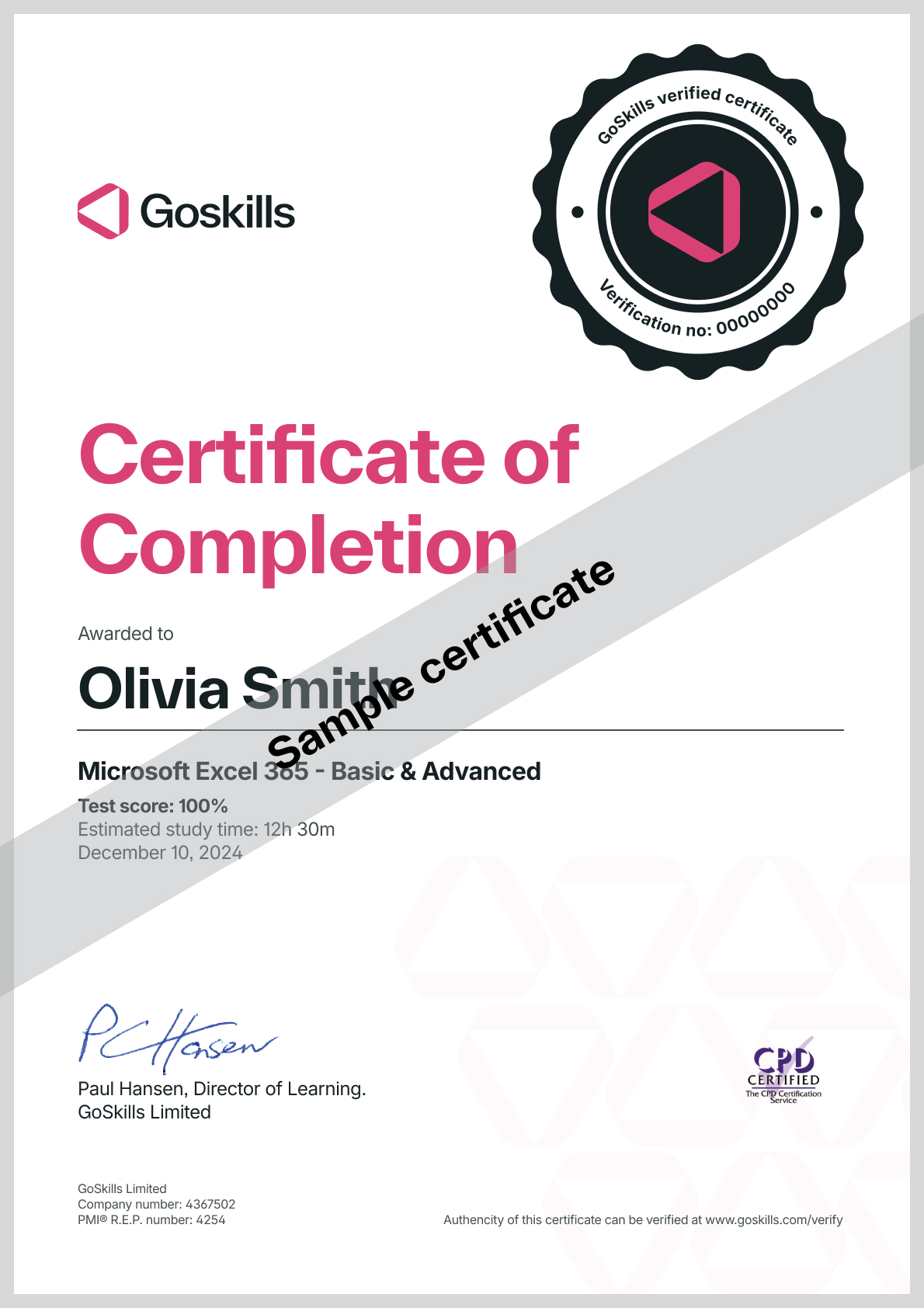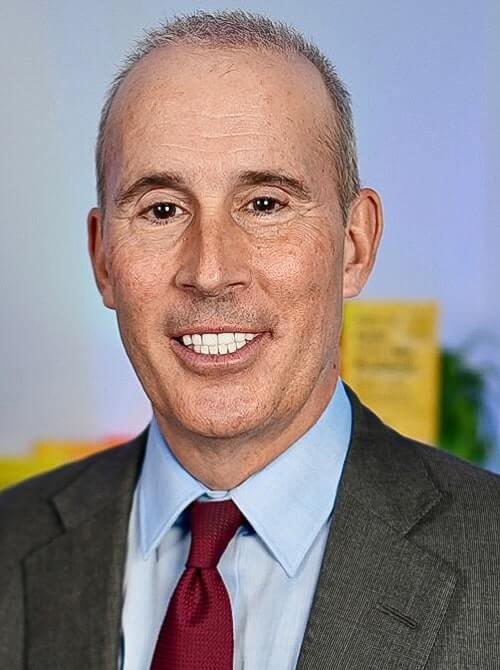Communication Skills Basics - The #1 Online Communications Course
Communication Skills Basics
Skills you’ll gain
Communication Skills Basics: Master the art of communicating
Great communication is an art. To become an expert, you first need to build a foundation of communication basics that will help you develop as a communicator.
Every time you speak, you want to be able to communicate with confidence so your audience remembers you and takes the action you want them to take. By understanding the fundamentals of communication, you can accomplish those goals.
In this online communications course, you'll learn:
- How to introduce yourself with impact
- How to make a great first impression
- How to improve your voice and eliminate verbal tics
- How to improve your presentation skills, and so much more!
Through a series of interactive, bite-sized lessons, you'll develop the confidence you need to deliver great speeches, nail interviews, and give great presentations every time. Our online communications classes are designed to help elevate your speaking skills and command the attention of any audience.
Start your journey to communication excellence today with our communication basics course!
Syllabus
Download syllabus-
1
Quick Wins! The High Tech Way to Perfect Communication Use your phone to record yourself and get the feedback you need to deliver messages effectively. 1m
-
2
Listening is Key Listening is the key to becoming a better communicator - here's why. 3m
-
3
Good News! The Problems We Think We Have Aren't Real Many of our preconceived notions of what makes a great communicator don't match up with reality. 5m
-
4
Communications Skills are the Most Important Skills for Success but are the Least Taught Verbal and non-verbal communication aren't taught in schools but can be a key factor for your success. 2m
-
5
Direct vs. Indirect Communication Being direct isn't always the most successful way to communicate or influence. 3m
-
6
You Are Normal to Fear Communicating In Some Circumstances Fear of public speaking is perfectly natural. 3m
-
7
The Power of the Positive Bad news causes many people to shut down, so it's helpful to start any communication with something good. 5m
-
8
Debunking the Myth of Charisma You don't need charisma to be a great communicator. 3m
-
9
Never Fall for These Communication Gimmicks Again! If you want to be a great communicator, don't use gimmicks to mask your problems. 5m
-
1
Introduction to How to Introduce Yourself Introducing yourself seems simple, but you can make your introduction memorable with preparation and practice. 3m
-
2
What NOT to Do Most people make a series of mistakes when introducing themselves and will most likely be forgotten when they're done. 3m
-
3
How to Introduce Yourself The Right Way What is your hook, and how can people connect with you in an easy, non-threatening way? 8m
-
4
First Video Rehearsal The only way to be supremely confident when introducing yourself is to record yourself on video and evaluate. 2m
-
5
Friend Feedback Will a friend notice the "hook" of your introduction? What do they like or dislike about your 30 second video? 3m
-
6
Conclusion to How to Introduce Yourself Give people a reason to remember you or talk to you. What you reference in your introduction can start a conversation, which can lead to more. 6m
-
1
How to Improve Your Voice Introduction There is no "perfect" voice, and many people succeed with traditionally flawed voices because they offer something unique. 2m
-
2
Improve Your Voice by Recording Your Voice Most people don't prefer the sound of their own voice, but recording it is key to improving it. 2m
-
3
Diagnosis of Your Own Voice and Feedback from Others What don't you like about your voice? Compare your list to honest feedback from people you trust. 3m
-
4
Defining Your Exact Problems There are three kinds of feedback you can get from colleagues regarding your voice. 5m
-
5
Listen to Natural Conversation Listening to a recording of your natural conversation can reveal interesting ways in which you speak well about a subject you're passionate about. 5m
-
6
Practice Again and Record Most people have perfectly good voices when they talk like to do in normal conversation and practice their material before delivering it. 3m
-
7
Don't Lower Your Voice Unnaturally lowering your voice to try and sound authoritative will have the opposite effect. 4m
-
8
Practice on Video Confidence is the key to a strong voice and effective talk, and practice will significantly raise your confidence level. 3m
-
9
How to Improve Your Voice Conclusion Practicing on video is usually more effective than vocal exercises or other techniques. 2m
-
1
Master the Quickest, Easiest Way to Eliminate Verbal Tics Here's a quick way to eliminate verbal tics right now. 3m
-
2
Good Communication is Better Than Perfection Our goal should be good communication, not perfect communication. So, focus on communicating ideas instead of preventing errors. 3m
-
3
Appear More Confident By Using Smaller Words Speakers often try to sound smarter by using big words or specific phrases, but this is counterintuitive to good communication. 3m
-
4
Avoid the Data Dump with This Memory Cheat Narrow your messages down and use a cheat sheet to help yourself remember important points instead of relying on your memory. 4m
-
5
The Number 1 Tip for Eliminating Nerves Record yourself practicing an important talk to vastly improve your delivery and speech. 2m
-
6
Eliminating the Source of Your Speaking Discomfort Once and For All Outside perspective can greatly improve your performance, but your biggest problem may be a bad, ill-prepared speech. 3m
-
1
Avoiding The Initial Wrong Turn Most Speakers and Presenters Make The starting point for every presentation and speech should be answering this question: What do you want your audience to do? 3m
-
2
Developing Expert Judgment for Your Public Speaking and Presenting Opportunities What does your audience need to know? Focus on 5 (or fewer) important messages for your audience. 4m
-
3
The Radical Yet Simple Solution To Finding Great Messages If you want to know what's most helpful for your audience, ask them. 3m
-
4
Your Stories Will Make Your Ideas Unforgettable The biggest difference between great communicators and everyone else is how they use stories to illustrate their key points. 6m
-
5
Your PowerPoint Will Create Engagement, Not Slumber Consider these rules to make your points come alive - and not bore your audience - during a presentation. 6m
-
6
Building an Ethical Cheat Sheet Just for You Prepare a plan and help yourself remember all your important points with a cheat sheet. 5m
-
7
This Is The Do Or Die Moment For Your Speaking Improvement The best way to be confident when you speak is to practice - on video - until you love it. 5m
-
8
There Is a Perfect Test for Your Speech Or Presentation Test your presentation video by asking friends and colleagues what stood out the most. 5m
-
9
Continuing Your Path of Public Speaking and Presentation Skills Improvement 2m
Certificate
Certificate of Completion
Awarded upon successful completion of the course.

Instructor
TJ Walker
TJ Walker has been conducting media training workshops and seminars since 1984. Walker has trained Presidents of countries, Prime Ministers, Nobel Peace Prize winners, Super Bowl winners, U.S. Senators, Miss Universes and Members of Parliament.
His book, "Secret to Foolproof Presentations" was a USA Today #1 Bestseller, as well as a Wall Street Journal and Business Week Bestseller. Walker is a also a regular contributor to Forbes and the Reuters Insider Network and has written for the Huffington Post.

TJ Walker
Public Speaking Trainer and Author
Accreditations
Link to awardsHow GoSkills helped Chris
I got the promotion largely because of the skills I could develop, thanks to the GoSkills courses I took. I set aside at least 30 minutes daily to invest in myself and my professional growth. Seeing how much this has helped me become a more efficient employee is a big motivation.



